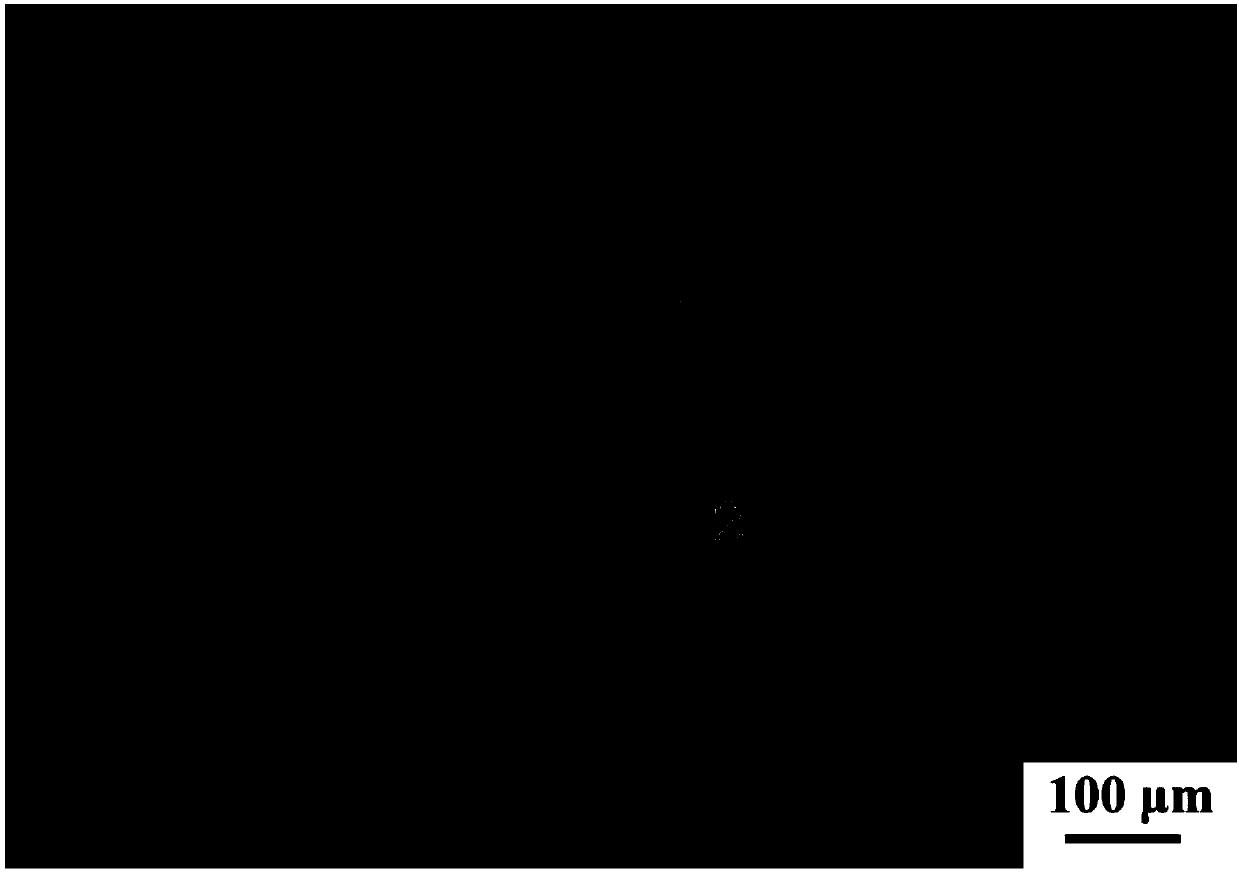Preparation method for laminated aluminum matrix composite material without residual pyrolytic carbon
A technology of aluminum-based composite materials and pyrolytic carbon, which is applied in the direction of metal layered products, chemical instruments and methods, lamination, etc., can solve the problem of weak interfacial bonding performance of layered composite materials, complicated thickness control methods, and inaccurate thickness control and other problems, to achieve the effect of simple thickness control method, shortened warm-up time and accurate thickness
- Summary
- Abstract
- Description
- Claims
- Application Information
AI Technical Summary
Problems solved by technology
Method used
Image
Examples
specific Embodiment approach 1
[0051] Specific implementation mode one: the preparation method of the layered aluminum-based composite material without residual pyrolytic carbon is carried out according to the following steps:
[0052] 1. Weighing:
[0053] Weigh 5~35 parts of SiC powder, 20~40 parts of solvent, 0.01~0.5 parts of dispersant, 5~20 parts of plasticizer, 4.5~69.9 parts of binder and 65~ 95 parts of aluminum metal as raw material;
[0054] Described solvent is dehydrated alcohol and n-butanol by mass ratio (0.5~1): the mixture of 1;
[0055] The dispersant is fish oil;
[0056] Described plasticizer is tributyl phosphate;
[0057] The binding agent is polyvinyl butyral resin powder;
[0058] 2. Preparation of SiC slurry:
[0059] Mix the SiC powder, solvent and dispersant weighed in step 1 to obtain a mixed slurry, perform ultrasonic dispersion on the mixed slurry, and then place the ultrasonically dispersed mixed slurry in a ball mill, and add to the ball mill Alumina balls are used for ...
specific Embodiment approach 2
[0076] Specific embodiment 2: The difference between this embodiment and specific embodiment 1 is that the SiC powder described in step 1 is one of 3C, 2H, 4H, 6H or any combination of several; the average particle size of the SiC powder is 0.3~50μm. Other steps and parameters are the same as those in the first embodiment.
specific Embodiment approach 3
[0077]Embodiment 3: The difference between this embodiment and Embodiment 1 or 2 is that: the aluminum metal in step 1 is pure aluminum or an aluminum alloy block; the aluminum alloy is Al-Si alloy, Al-Cu alloy, Al -Mg alloy, Al-Si-Cu alloy, Al-Si-Mg alloy, Al-Cu-Mg alloy, Al-Zn-Cu alloy, Al-Zn-Mg-Cu alloy, Al-Be alloy, Al-Li alloy , Al-Si-Cu-Mg alloy one or a mixture of several; the mass fraction of Si in the Al-Si alloy is 0.5% to 25%; the mass fraction of Cu in the Al-Cu alloy is 0.5 % to 53%; the mass fraction of Mg in the Al-Mg alloy is 0.5% to 38%; the mass fraction of Si in the Al-Si-Cu alloy is 0.5% to 25%, and the mass fraction of Cu is 0.5% to 53% %; the mass fraction of Si in Al-Si-Mg alloy is 0.5%-25%, the mass fraction of Mg is 0.5%-38%; the mass fraction of Cu in Al-Cu-Mg alloy is 0.5%-53%, Mg The mass fraction of Zn in the Al-Zn-Cu alloy is 0.5% to 55%, and the mass fraction of Cu is 0.5% to 53%; the mass fraction of Zn in the Al-Zn-Mg-Cu alloy The mass fracti...
PUM
| Property | Measurement | Unit |
|---|---|---|
| thickness | aaaaa | aaaaa |
| particle size | aaaaa | aaaaa |
| thickness | aaaaa | aaaaa |
Abstract
Description
Claims
Application Information
 Login to View More
Login to View More - R&D
- Intellectual Property
- Life Sciences
- Materials
- Tech Scout
- Unparalleled Data Quality
- Higher Quality Content
- 60% Fewer Hallucinations
Browse by: Latest US Patents, China's latest patents, Technical Efficacy Thesaurus, Application Domain, Technology Topic, Popular Technical Reports.
© 2025 PatSnap. All rights reserved.Legal|Privacy policy|Modern Slavery Act Transparency Statement|Sitemap|About US| Contact US: help@patsnap.com

